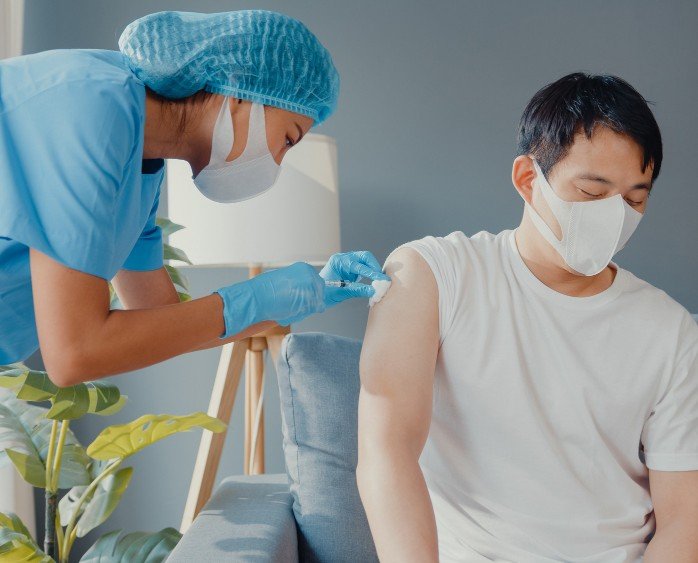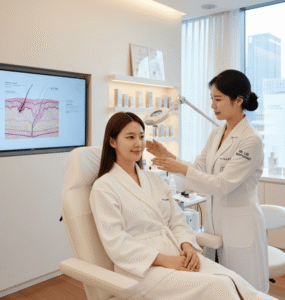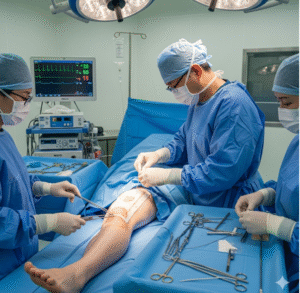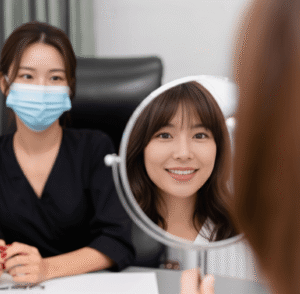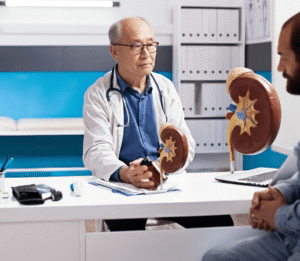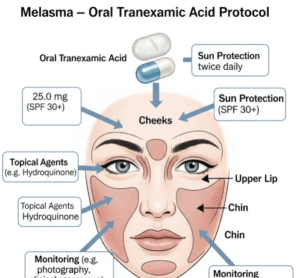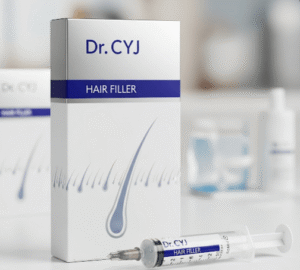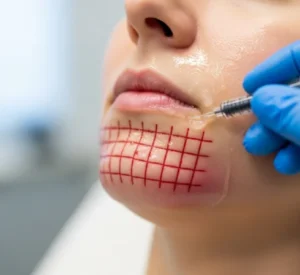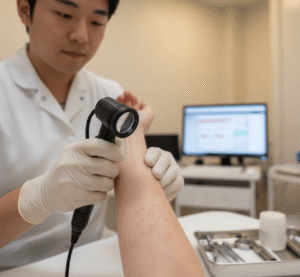Vaccination remains one of the most important tools in protecting public health. In South Korea, where community well-being and prevention are national priorities, vaccines continue to play a central role in keeping the population safe from infectious diseases.
As we move through 2026, there are several key updates and reminders about vaccination programs, schedules, and new developments that every Korean citizen should be aware of. Staying informed helps individuals make timely decisions, protect their families, and contribute to the nation’s collective immunity.
1. National Immunization Program (NIP) Overview
South Korea’s National Immunization Program (NIP) provides essential vaccines free of charge to children, adolescents, and certain adult groups. The government continues to update its vaccination calendar based on scientific evidence and global health recommendations.
The program covers more than 20 diseases, including measles, mumps, rubella, hepatitis B, influenza, HPV, and COVID-19.
Vaccines are available through public health centers and designated hospitals nationwide. Digital records are linked to the Korea Disease Control and Prevention Agency (KDCA) system, making it easy for individuals to check their vaccination history via the COOV app or local clinics.
- ❂ Tip: Always verify your vaccination record through the national portal or your clinic to avoid duplicate doses or missed schedules.
2. Child and Adolescent Vaccination Updates
For parents, the vaccination calendar for children remains one of the most critical health responsibilities. The government emphasizes timely completion of childhood vaccines before school entry.
Recent reminders include:
- ⚪ Influenza vaccines are recommended annually for children aged 6 months and older, especially during winter.
- ⚪ HPV vaccines (for human papillomavirus) are now offered free to both girls and boys aged 12–17 to prevent cervical and other HPV-related cancers.
- ⚪ Booster shots for DTaP (diphtheria, tetanus, and pertussis) and polio are important for school-aged children to maintain immunity.
- ⚪ Hepatitis A vaccination is encouraged for children and adolescents, especially those traveling abroad or living in high-risk areas.
Parents are urged to book vaccinations through clinics early, as peak school enrollment seasons often lead to scheduling delays.
3. Adult and Senior Vaccination Recommendations
Vaccination is not just for children. Korean adults and seniors are strongly encouraged to stay updated on preventive vaccines to reduce severe illness risks.
- ❂ Influenza: Annual vaccination remains the best protection during the winter months. Free flu shots are offered to adults aged 65 and older every fall through public health centers.
- ❂ Pneumococcal Vaccine: Recommended for adults aged 65+ and individuals with chronic diseases such as diabetes or heart disease. It helps prevent pneumonia and bloodstream infections.
- ❂ Shingles (Herpes Zoster): Adults over 50 are advised to get vaccinated to reduce the risk and severity of shingles outbreaks.
- ❂ Tdap Booster: A booster for tetanus, diphtheria, and pertussis is advised every 10 years for adults.
- ❂ Hepatitis B: Essential for healthcare workers, individuals with liver conditions, and those who have not previously completed the full series.
Vaccination among adults is crucial not only for personal protection but also for reducing disease spread among families and communities.
4. COVID-19 Vaccination: Ongoing Boosters and Protection
While the pandemic emergency phase has ended, COVID-19 vaccination continues to play a major role in public health management in Korea.
The KDCA recommends updated booster shots targeting newer variants, especially for older adults, immunocompromised individuals, and healthcare workers.
- ⚪ Eligibility: Boosters are currently available for all adults aged 18 and over, with priority for high-risk groups.
- ⚪ Timing: A booster is recommended at least six months after the last dose or infection.
- ⚪ Vaccines: Newer mRNA formulations and protein-based vaccines are being used to enhance immunity against evolving strains.
- ⚪ Access: Vaccination appointments can be made through local health centers or the KDCA online booking platform.
Citizens are encouraged to stay informed through official KDCA updates, especially as vaccine recommendations evolve seasonally.
5. New Developments and Innovations in Vaccination
Korea continues to be a global leader in biotechnology and vaccine research. Several Korean pharmaceutical companies are actively developing next-generation vaccines, contributing to both domestic security and international supply chains.
Key areas of progress include:
- ❂ Universal flu vaccines designed to protect against multiple influenza strains with a single shot.
- ❂ mRNA vaccine production, building on the COVID-19 platform to address new infectious threats.
- ❂ Personalized vaccines being researched for use in cancer immunotherapy.
- ❂ Travel and global health vaccines targeting diseases like dengue, malaria, and Japanese encephalitis for outbound travelers.
The government’s investment in bio-health innovation ensures Korea remains prepared for future pandemics and public health emergencies.
6. Travel Vaccinations and International Health
Korean citizens traveling abroad should pay attention to destination-specific vaccination requirements. Many countries request proof of yellow fever, meningococcal, or polio vaccination depending on entry regulations.
Before traveling, it’s recommended to:
- ⚪ Visit a designated travel clinic at least 4–6 weeks before departure.
- ⚪ Check the latest guidelines from the KDCA or the World Health Organization (WHO).
- ⚪ Bring an updated vaccination certificate or COOV record when crossing borders.
For frequent travelers and overseas students, digital vaccination certificates issued by the Korean health system are widely accepted internationally.
7. How to Access Vaccines and Stay Informed
Accessing vaccines in Korea is easy and highly organized. Citizens can receive vaccinations at local health centers, designated hospitals, or community clinics.
To stay informed:
- ❂ Use the COOV App: Official government app for vaccination certificates and records.
- ❂ Follow KDCA Announcements: Regular updates on vaccination schedules, safety alerts, and new guidelines.
- ❂ Consult Family Doctors: Personalized advice for people with chronic illnesses or allergies.
- ❂ Join Public Campaigns: Seasonal campaigns for flu or COVID-19 boosters often include free or discounted vaccinations.
Digital reminders and local outreach programs continue to make Korea’s vaccination system one of the most efficient in the world.
8. Vaccine Safety and Monitoring
Vaccine safety remains a top national priority. The KDCA continuously monitors adverse events through a national reporting system. Most side effects are mild and temporary, such as soreness or fatigue.
Serious reactions are extremely rare, and the government offers support programs for those affected. Healthcare providers are trained to manage any post-vaccination symptoms effectively.
- ⚪ Tip: Always report any unusual side effects to your healthcare provider.
- ⚪ Stay hydrated and rest after receiving a vaccine to minimize discomfort.
- ⚪ Avoid misinformation: Rely on official sources rather than unverified online claims.
Public confidence in vaccines remains high in Korea due to transparency and consistent communication from medical authorities.
9. Looking Ahead: A Culture of Prevention
Vaccination has become a cornerstone of Korea’s culture of prevention. From infants to seniors, the country’s collective effort ensures lower infection rates, fewer outbreaks, and longer life expectancy.
As new vaccines continue to emerge, citizens are encouraged to remain proactive — checking updates regularly, consulting doctors, and ensuring family members are up to date.
The strength of Korea’s healthcare system lies not only in advanced hospitals but in the everyday actions of individuals who choose prevention over reaction.
Final Thoughts
Staying informed about vaccination updates isn’t just about compliance — it’s about protecting your community. Korea’s continued commitment to immunization shows how collaboration between citizens, healthcare workers, and policymakers can keep a nation healthy.
Vaccines save lives, strengthen communities, and secure the future. Every shot matters, and every citizen plays a role in keeping Korea strong and resilient against disease.

